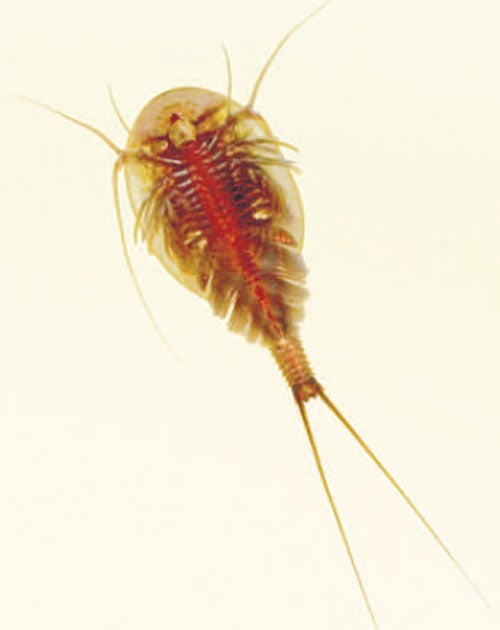'Most ancient' species is alive and well in Scotland

Your support helps us to tell the story
From reproductive rights to climate change to Big Tech, The Independent is on the ground when the story is developing. Whether it's investigating the financials of Elon Musk's pro-Trump PAC or producing our latest documentary, 'The A Word', which shines a light on the American women fighting for reproductive rights, we know how important it is to parse out the facts from the messaging.
At such a critical moment in US history, we need reporters on the ground. Your donation allows us to keep sending journalists to speak to both sides of the story.
The Independent is trusted by Americans across the entire political spectrum. And unlike many other quality news outlets, we choose not to lock Americans out of our reporting and analysis with paywalls. We believe quality journalism should be available to everyone, paid for by those who can afford it.
Your support makes all the difference.A rare shrimp that may be the most ancient animal species on Earth is alive and well in Scotland, scientists have discovered.
Two colonies of the tadpole shrimp, Triops cancriformis, were found at Caerlaverock on the Solway Coast of Dumfriesshire. Experts think there could be more "hidden" populations of the crustacean – a designated endangered species – elsewhere.
The tadpole shrimp may have the oldest pedigree of any living animal, scientists believe. Fossil finds show that the shrimp is virtually the same today as it was 200 million years ago, when the first dinosaurs evolved.
The shrimps are adapted to living in temporary water pools. When the water dries up, the adults die but leave behind eggs that can remain dormant for years until wet conditions return.
Understanding the animal's unusual lifestyle helped researchers from the University of Glasgow make the discovery announced today.
Mud thought to contain tadpole shrimp eggs was sampled from pools around Caerlaverock, dried, re-wetted and placed in small aquaria.
The scientists were startled to find a large shrimp swimming in one of the tanks within a couple of weeks.
Join our commenting forum
Join thought-provoking conversations, follow other Independent readers and see their replies
Comments